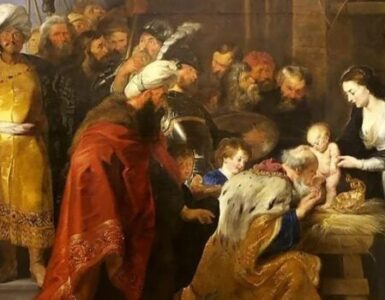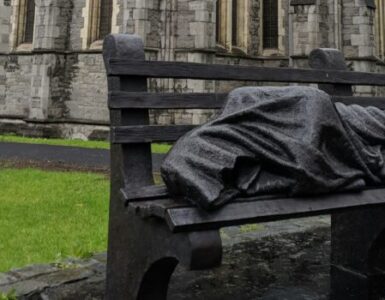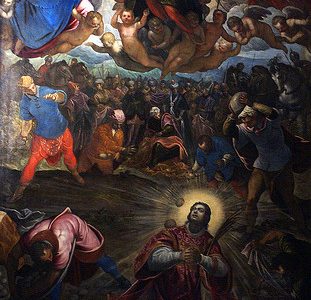We don’t know the exact year that Olympias was born, but it was between the years 360–365. Her parents were quite wealthy and noble. Her father, Secundus (or Selencus) was a “count” of the empire. Her parents died, however, while she was still young, leaving her a huge inheritance.
Around the year 385, she married a man named Nebridius, Prefect of Constantinople. St. Gregory Nazianzus was one of the guests invited to the wedding, but was unable to attend. He did, however, send a poem to the newlyweds. Nebridius did not live long, and soon Olympias was a childless widow. Being a very pious soul, she devoted her time and energy to serving the Lord and turned down all proposals of marriage.
The Bishop of Constantinople, Nectarius, consecrated her as a deaconess. Beside the principle church of Constantinople, she had a convent built where she, three relatives and a large number of maidens withdrew from the community and spent their time consecrated to the service of God. After St. John Chrysostom became Bishop of Constantinople in 398, he acted as spiritual guide to Olympias and her companions in the convent.
Since many people knew that Olympias was not only very wealthy but also very generous and kind, people requesting financial assistance often approached her. Knowing this, St. John would council her on how to be a good steward of the money that God had allowed her to have. Olympias seldom made any decisions without the wise advice of St. John and often put at his disposal large amounts of money for religious and charitable objects. So when it happened that St. John Chrysostom was exiled, Olympias offered him much assistance and support.
Being totally loyal to him, she refused to enter into communion with his appointed successor, but St. John continued to guide her through his correspondence. Seventeen of these letters survived through the ages and are testimony to the piety of this spiritual daughter of the great bishop. Olympias later was also exiled and met her death soon after the death of St. Chrysostom, probably in the year 408.
It matters not how wealthy one is or even how wise, but how we use what the Good Lord has given us. One could have untold millions, but if one does not know God and lives life squandering money on fanciful things and storing up goods for oneself and ignoring the needs of others, then one has lived in vain. As Jesus said, “Freely you have received, freely give.” Saint Olympias lived these words. She was truly a good steward of the riches that the Lord gave her, helping others in need and living her life in consecration to His service.
Prayer
Father in heaven, we thank you for your goodness and generosity. You give each of us different gifts. We pray that we will be good stewards of the gifts that you have bestowed on us. Like the council that St. John gave to Olympias, we ask for spiritual guidance also, Father, that we will know Your will for us and how to use our gifts in service of others. We pray that we always remember that what we have is to be extended, not hoarded for ourselves, whether it be our riches, our time or our talent; for what you have given to us is not ours alone, but to be shared with others. Amen.
Other Saints We Remember Today
St. Lazarus (1st Century), whom Our Lord raised from the dead, brother of Sts. Martha and Mary Magdalen
image: Rijksmuseum, CC0, via Wikimedia Commons













